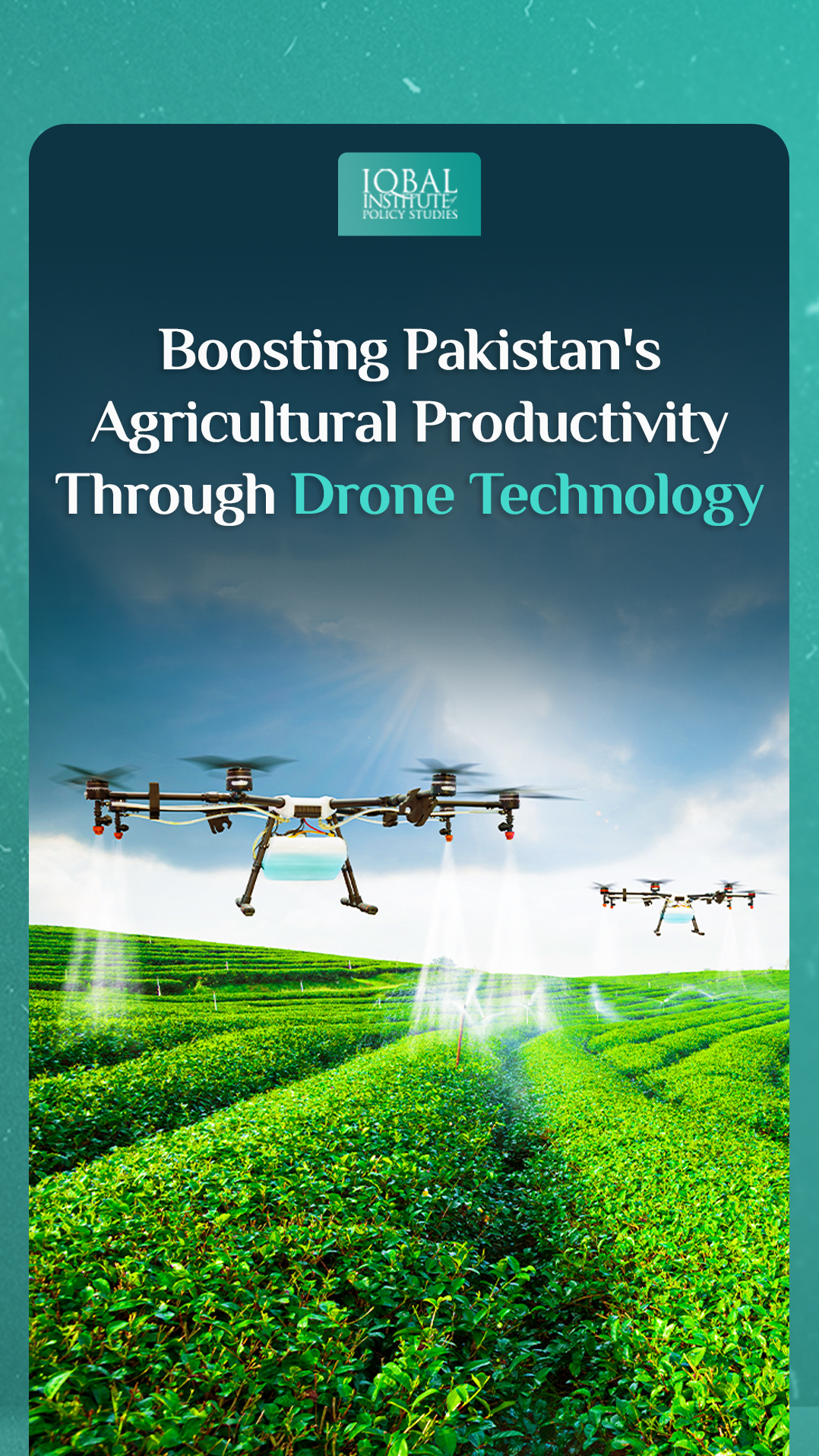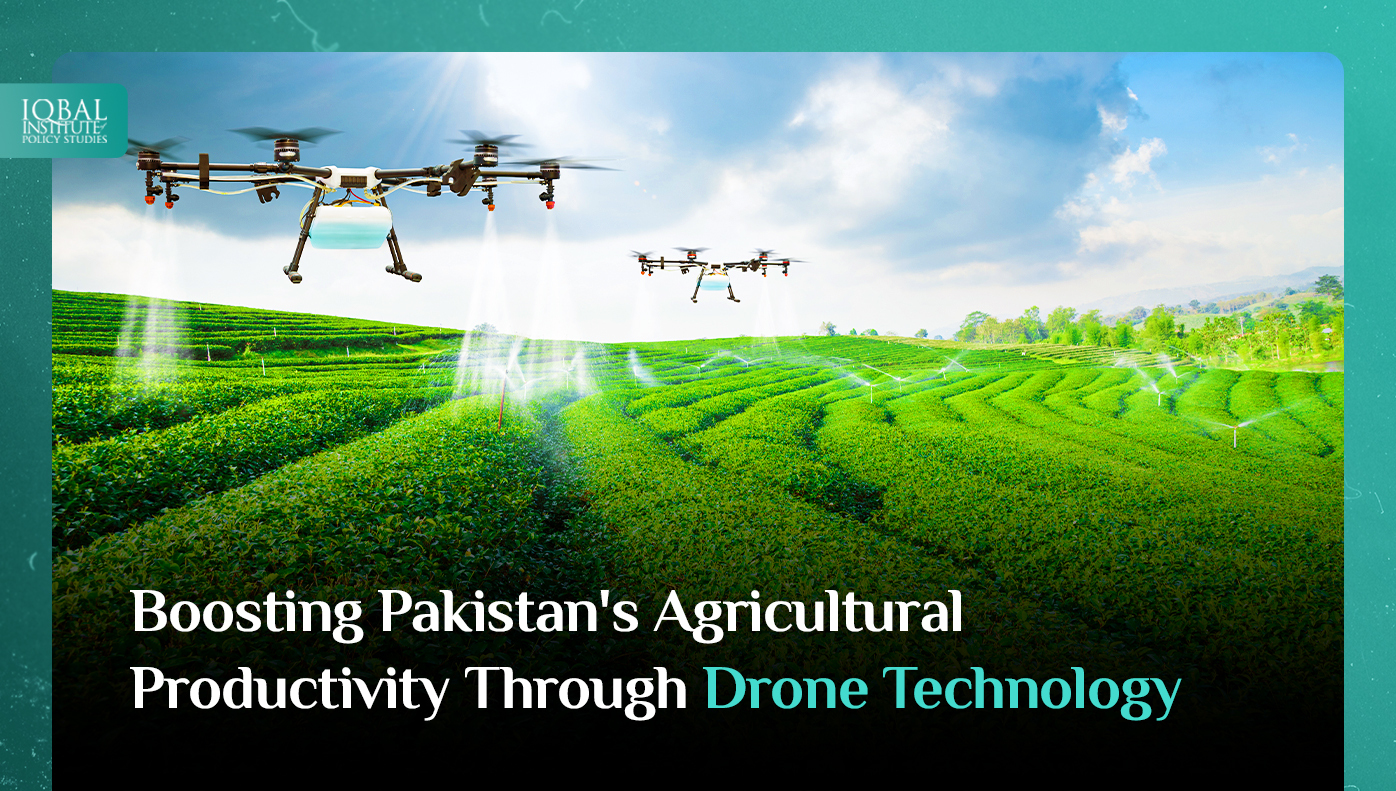The agricultural sector is vital for the Pakistan economy to sustain the livelihoods of more than 41% of families and ensure food security for 229 million people. However, the sector faces several challenges related to poor irrigation facilities, poor crop yields, unfair distribution of water, poor implementation of agricultural reforms and regulations, lack of post-harvest infrastructure, and limited access to financing. One of the most daunting challenges of the agriculture sector is that farmers are unskilled and unaware of modern farming techniques. Agricultural productivity will be increased with the incorporation of new farming techniques.
Currently, the world is moving towards a technological revolution. Different technologies like Artificial Intelligence (AI), Blockchain, and drone technology are increasingly used in almost every sector. Similarly, drone technology is being used in the agriculture sector to carry out different tasks such as crop mapping, field analysis, irrigation, pesticide spraying, and crop monitoring in an efficient manner. Drones are unmanned aircraft that can be controlled by a pilot or autonomously via onboard computers. They come in different shapes and sizes and are equipped with different sensors and cameras.
In Pakistan, the agriculture sector faces several challenges that can be addressed effectively through technological solutions. The sector lacks proper irrigation facilities. Despite having one of the largest irrigation systems in the world, the Indus River Irrigation System (IRIS), there is hardly an efficient irrigation network for the country’s major crop fields. Also, the country lacks proper mechanisms for crop mapping, field analysis, and crop monitoring for the agriculture sector, resulting in low crop productivity.
Drone technology is considered one of the most helpful digital solutions to address the challenges faced by the country’s agriculture sector. A drone is an aerial machine that monitors crop production and takes care of agricultural fields. It is a man-made machine that has reputed performance in the agricultural field. This technology is used in more than half of the world due to its greater benefits in the fields. Moreover, drones can be efficiently used for the provision of water in greater quantities to the crop. These gadgets sprinkle water over the crops through the camera system. The cameras work like eye birds to visually represent the irrigation process in the fields.
Furthermore, farmers can plant trees easily, and the cultivation of forests on a large scale can be made efficiently through this technology. In this regard, drones are used to make a survey of feasible areas for plantation and give details in the form of 3D maps. Moreover, the technology can be used to draw a map of crop fields. For this purpose, GPS systems are used in drones for control, positioning, and speed of the machine. The drone covers a larger distance through GPS and requires less time to determine plants’ height. GPS can detect various disease attacks and helps farmers carry out numerous tasks.
Using drone technology can help analyse plant growth as it focuses on every part of the land and thus results in more crop production. Although this technology is new, it can be implemented in Pakistan. The use of this technology needs proper education, and for this purpose, the government must give incentives to the farmers to take an interest in education and the use of technology in agricultural fields. Considering the importance of this technology, Pakistan’s ministry for science and technology signed an agreement with a private company, ABM-SATUMA, to introduce drones into the agriculture sector.
According to the agreement, the technology would be used to spray pesticides in nearly 60 districts. Also, drones completed the former government’s billion trees tsunami project efficiently. Compared with manual labour procedures, drones are quite helpful in reducing the time and cost of farming. However, to make this technology available for every sector segment, industries and Research centres must be given incentives to invest in making and modernising the technology. Special education centres for drones in the agricultural sector must be established to maximise crop yields.



Leave a Reply